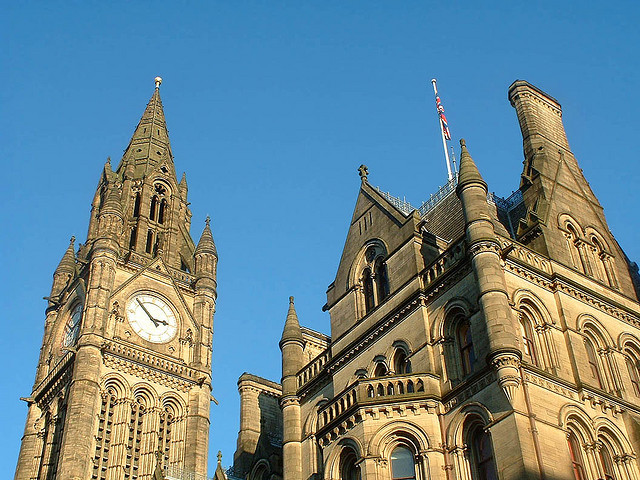Local government needs fiscal devolution, more power in the hands of councils and communities and respect from the centre
What does the result of the 2015 General Election result mean for local government? Jonathan Carr-West of the LGiU think tank argues that local government should not be forgotten amidst all of the new announcements, and that the sector needs more power of spending and services, and more respect and space from the still-dominant political centre.

Credit: MattWil1s0n, CC BY 2.0
The general election results took a lot of people by surprise. For months we were told that Labour and the Conservatives were neck and neck in the polls and the last weeks of the election campaign were dominated by anticipation of a hung parliament. National newspapers ran hysterical headlines warning of the “chaos” and “paralysis” that would attend weeks of coalition negotiations.
At LGiU, we were never really worried about this paralysis because we know that most of the things that really matter to people: how will our elderly relatives be cared for, will our children get a decent education, will our neighbourhoods be safe and clean, all these things are delivered by local government and all of them will keep happening whatever power games go on in the Palace of Westminster.
All of which makes it somewhat of an irony that all the focus was so exclusively on the general election, admittedly a dramatic one, with local elections in 279 councils relegated to the background even though they are more significant in shaping the services that matter most to people in their everyday lives.
And that irony is even deeper, because the General Election result will have been a lot less surprising to anyone who’s been following local government elections over the last couple of years. We have consistently seen the Conservative vote hold up better than predicted and Labour not losing much but failing to gain any ground outside London and the Northern Mets.
Looking at how people have actually voted in local elections rather than how they tell pollsters they are going to vote would have given us a much more accurate sense of what to expect. There’s an under-reported symbiosis between local and national politics: national success is inevitably built on local foundations and increasingly it is at a local level than innovative policy is formed. But, of course local government also has to work within the policies determined by Whitehall. So what did the election mean for local government? There are two key implications.
The first is the continuation of the previous government’s funding reductions for local government. Having already cut central government funding by about 40% since 2010 we are now looking at about the same level of cuts again over the next parliament. Effectively the revenue support grant will vanish to the point of irrelevance.
On of the great untold success stories of the last five years has been local government’s ability to absorb massive cuts whilst largely protecting the public from front line service reductions. Such that we have seen satisfaction with councils services remain levee or even improve. That has been achieved through reducing head count, rationalising assets and more efficient commissioning of services. The million dollar question now (or to be more decide the 10 billion pound question) is whether this level of cuts can be maintained without significantly impacting on the level and quality of public services.
When we surveyed our local authority members in February we found 50% of them were concerned that their council would no longer be able to maintain basic statutory services. The government’s ambition here is that councils should become financially self sufficient. But that can’t happen until councils are given more control over their own financial destinies.
That’s just one reason why devolution matters so much and that, of course is the second major consequence of the Conservative’s re-election for local government. Britain remains one of the most centralised countries in the developed world: a country in which 98% of taxation is set by one man (and it has always been a man!). Yet it is the Chancellor of the Exchequer himself who has spearheaded the current drive to devolution.
The Chancellor has made it clear that he sees this as a key task for the next Parliament and has argued that devolution offers the opportunity to “create a balanced, more healthy economy for working people across our United Kingdom”. The appointment of Greg Clark as Secretary of State for Communities and Local Government underlines the strategic importance of this approach, bringing CLG to the forefront of it for the first time.
This is welcome news for those of us who have long argued that effective growth and sustainable public service reform both require a relocalisation of British politics.
It’s clear though that this devolution must operate within some formal parameters set by central government, specifically the creation of an elected mayor: “it’s right people have a single point of accountability: someone they elect, who takes the decisions and carries the can. So with these new powers for cities must come new city-wide elected mayors who work with local councils.” the Chancellor argued in his first major speech after the election.
We welcome the Cities and Local Government Devolution Bill, It offers a real opportunity to rebalance the political and economic landscape of the UK away from Westminster.
But we would like to see devolution go further: to include real fiscal devolution of the sort our local authority members tell us they want and need. Our finance survey also found that over 90 per cent of councils felt the local government finance system is not fit for purpose, unpredictable and outside their control. We know that if councils are really to grow local economies and reform local services, they need the ability to raise and spend money locally, by varying business rates for example, and not just to manage devolved budgets from central government. That’s the only way they can continue to deliver services in reduced budgets.
We would also like to see devolution go wider: to include the counties and other parts of the country outside the major cities. Those areas are to be offered a variation of the Growth Deal programme from the last parliament, we’d like to see this allow a similar level of ambition to city devolution.
Most importantly, we must avoid a cumbersome Whitehall led process for devolution. If we want to see these reforms happen at scale and at speed, councils should have the opportunity and the responsibility to put forward creative proposals for how to make devolution work in their areas. Crucially these plans must be as much about what they can deliver better as about the extra powers they need. Government’s default position should be to let it happen.
At LGiU we hear a clear message from our members about what local government wants and needs: fiscal devolution, more power in the hands of councils and communities and respect (and space) from central government. Rhetorically, at least, all these things are on the table, the challenge is to make them a reality.
—
This post represents the views of the author and not those of Democratic Audit or the LSE. Please read our comments policy before posting.
—
 Dr Jonathan Carr-West is Chief Executive of the LGiU think tank
Dr Jonathan Carr-West is Chief Executive of the LGiU think tank





 Democratic Audit's core funding is provided by the Joseph Rowntree Charitable Trust. Additional funding is provided by the London School of Economics.
Democratic Audit's core funding is provided by the Joseph Rowntree Charitable Trust. Additional funding is provided by the London School of Economics.
#localgov need fiscal devolution & more power & respect from the centre, argue @LGiU @democraticaudit https://t.co/2LHGgTj9CN
Good article from @democraticaudit- local councils need greater localised powers and more respect from Westminster: https://t.co/xYs7Bx4iJM
Local government needs fiscal devolution, more power in the hands of councils and communities and respect from the… https://t.co/BD02fozCJ5
Local government needs fiscal devolution, more power in the hands of councils and communities and respect from… https://t.co/aszNMNo1Px
Local government needs fiscal devolution, more power in the hands of councils & communities, + respect from centre https://t.co/SGwFDhZbJp
#localgov needs fiscal devolution, more power in the hands of councils and communities and respect from the centre https://t.co/GHwLIEAoav
Local government needs fiscal devolution, more power in the hands of councils and… https://t.co/jibx1ZEDOV https://t.co/E6vbFlCMRP